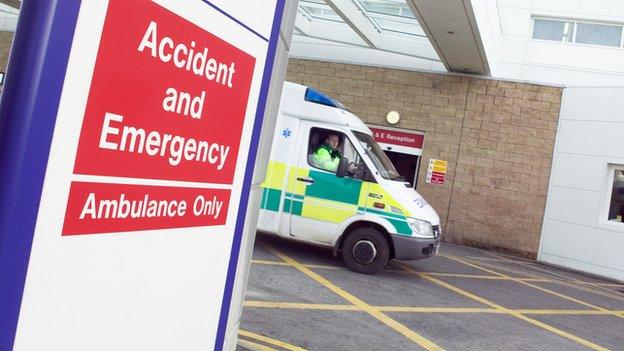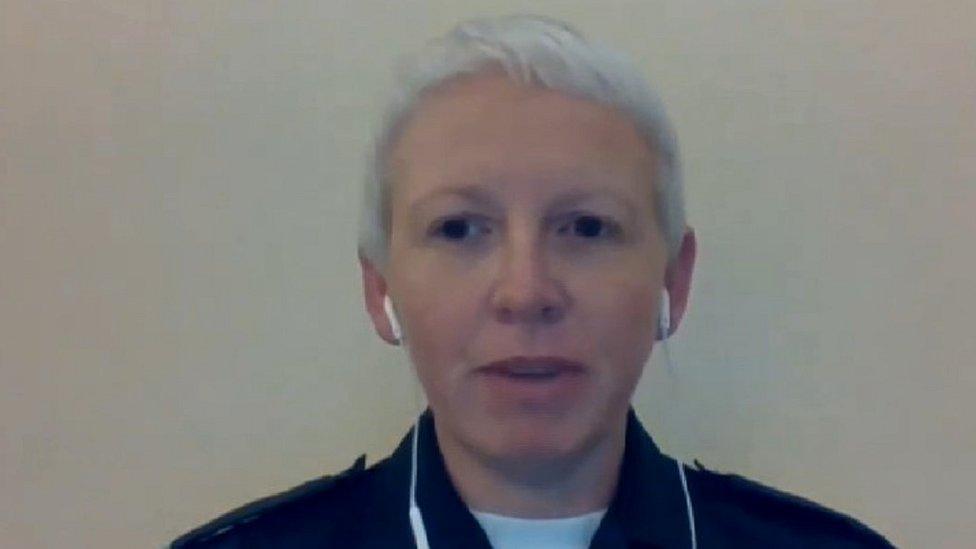Covid in Scotland: Surge in 999 calls for mental health issues
- Published

Ambulance crews have handled an increase in mental health calls since the start of the pandemic, MSPs have heard.
The Scottish Ambulance Service (SAS) said overall demand had dropped but calls for people needing help with a mental health issue had risen by 9%.
The service is facing extra costs of around £18.5m because of Covid, about half of which is for staffing.
A total of 670 SAS workers have tested positive for Covid so far.
SAS chief executive, Pauline Howie, told Holyrood's health committee that at the beginning of lockdown last year non-scheduled emergency demand fell by about 13%.
She said: "As lockdown measures eased, demand started to increase back to normal levels around August, and then as more restrictions were introduced, demand has again fallen.
"While overall unscheduled demand has decreased, our demand for mental health calls has increased over that time period.
"There's been a 9% increase in mental health presentations to our services and mental health presentations now represent 6% of all our calls to the ambulance service."
Despite the emergency service's workload falling by almost a third at points during the lockdown, response times have been slower by every measure, the health committee heard.
The SAS said increased emergency response time was partly because of the additional time for donning and doffing of equipment, as well as increased cleaning regimes.
'Struggling mentally'
Gail Topping, a paramedic with more than 20 years' experience, based at Livingston Ambulance Station, said it had been a "very challenging" time for SAS workers having to adapt to new ways of working.
She said: "We are certainly responding to a lot more people who are struggling mentally with the restrictions that have been in place.
"I know that a number of my colleagues have responded to increased calls for deaths by suicide."

Paramedic Gail Topping told Holyrood's health committee that wearing PPE made the more tactile side of her job more challenging
Asked about the impact on paramedics, she added: "We will respond to the people who are acutely unwell - whether that's physically or mentally unwell - and with the enhanced PPE, sometimes the human interaction has been lost."
"Part of my care of a patient would be to hold someone's hand, reassure them and perhaps even give a hug, and a lot of that has been lost."

